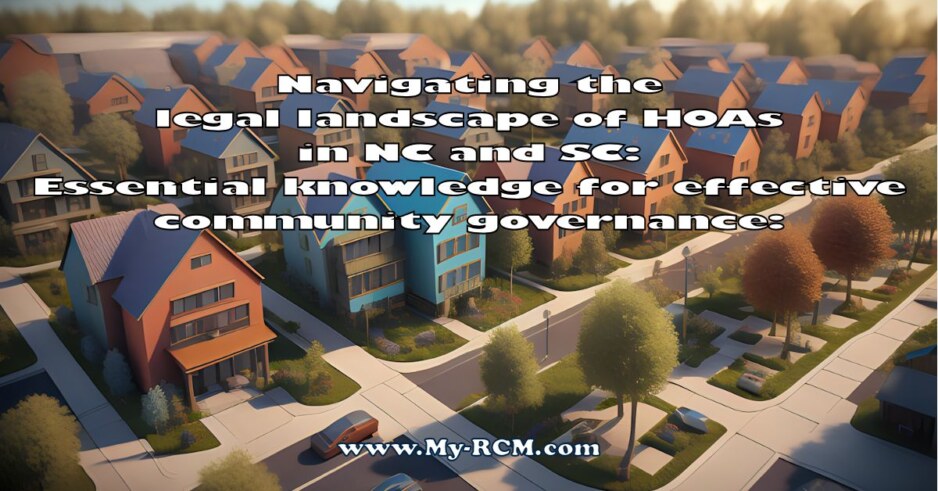Mastering HOA Management in North and South Carolina: A Comprehensive Guide
Effective HOA Management in North and South Carolina
Homeowners associations (HOAs) play a vital role in maintaining the well-being and harmony of planned communities in North and South Carolina. Effective HOA management ensures the upkeep of common areas, enforces community rules, and fosters a sense of belonging among residents. However, managing an HOA can be a complex and time-consuming task, especially for volunteer boards and those without prior experience.
Navigating the Legal Framework of HOAs in North and South Carolina
HOAs in North and South Carolina operate under specific legal guidelines outlined in the respective state’s statutes. Understanding these laws is essential for HOA boards to make informed decisions and avoid legal pitfalls.
North Carolina
- The North Carolina Planned Community Act (NCPCA) governs the formation, operation, and dissolution of HOAs.
- The NCPCA outlines the rights and responsibilities of HOA members, boards, and management companies.
- HOAs in North Carolina must adhere to specific procedures for meetings, elections, recordkeeping, and financial management.
South Carolina
- The South Carolina Condominium Act and the South Carolina Horizontal Property Regime Act regulate HOAs in the state.
- These laws define the powers and duties of HOA boards, establish procedures for rule-making and enforcement, and address dispute resolution mechanisms.
- HOAs in South Carolina must comply with specific requirements for annual meetings, budget preparation, and reserve fund management.
Essential Strategies for Effective HOA Management
Effective HOA management requires a combination of organizational skills, communication finesse, and legal understanding. Here are some key strategies to consider:
- Establish clear communication channels: Foster open and transparent communication with residents through regular newsletters, email updates, and community forums.
- Enforce community rules consistently and fairly: Apply rules impartially and consistently to maintain a sense of fairness and avoid conflicts among residents.
- Maintain accurate and up-to-date records: Keep meticulous financial records, meeting minutes, and correspondence to ensure compliance with legal requirements and facilitate audits.
- Conduct regular maintenance of common areas: Proactively address maintenance needs to preserve property values and prevent costly repairs in the long run.
- Seek professional guidance when needed: Consult with legal experts, community management companies, or HOA consultants for complex issues or specialized services.
Benefits of Utilizing Professional HOA Management Companies
For HOAs seeking to streamline operations and enhance their efficiency, partnering with a professional HOA management company can be a valuable asset. These companies provide a range of services, including:
- Financial management: Handling accounting tasks, preparing budgets, and managing reserve funds.
- Maintenance oversight: Coordinating repairs, scheduling vendors, and ensuring compliance with safety regulations.
- Rule enforcement: Addressing violations, mediating disputes, and fostering a harmonious community environment.
- Legal compliance: Providing expert guidance on legal matters, ensuring adherence to state and federal laws, and representing the HOA in legal proceedings when necessary.
- Administrative support: Managing administrative tasks, handling communication with residents, and organizing community events.
Conclusion
Effective HOA management is crucial for maintaining a thriving and well-governed community. By understanding the legal framework, implementing strategic approaches, and considering professional management services, HOAs in North and South Carolina can effectively manage their communities, enhance property values, and foster a sense of belonging among residents.
